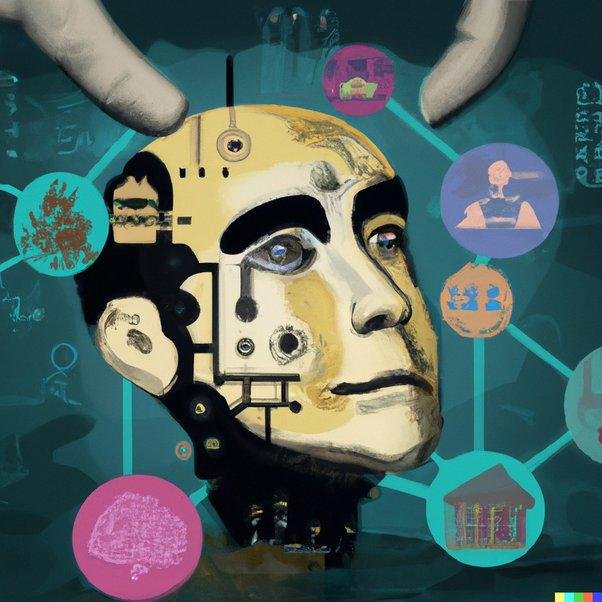Artificial intelligence (AI): AI has become increasingly prevalent daily, with applications in everything from healthcare to finance. This topic could explore the benefits and challenges of AI, as well as the ethical considerations surrounding its use
Artificial intelligence (AI) is rapidly becoming a ubiquitous presence in our daily lives. AI is transforming the way we live and work, from algorithms recommending products and services online to the development of autonomous vehicles designed to drive us around.
In this essay, we will explore the benefits and challenges of AI, as well as the ethical considerations surrounding its use.

One of the most significant benefits of AI is its ability to process and analyze large amounts of data quickly and accurately. In industries such as healthcare, this ability has the potential to revolutionize the way we diagnose and treat illnesses.
AI-powered tools can help doctors identify patterns in medical data that humans may have missed, leading to more accurate diagnoses and better treatment outcomes.
Finance is utilizing AI to enhance risk management and detect fraud. Machine learning algorithms can analyze financial data to identify patterns and predict future trends, helping investors to make better decisions.
Additionally, the finance industry is developing AI-powered chatbots to deliver customer service. This allows banks and financial institutions to offer more personalized and efficient services to their customers.
Another area where AI is having a significant impact is transportation. Engineers are developing self-driving cars that use AI to navigate roads and avoid obstacles.
This technology has the potential to reduce the number of car accidents caused by human error. As well as improve traffic flow, and reduce the environmental impact of transportation.
However, with these benefits come significant challenges. One of the biggest challenges is the potential impact of AI on employment.
As machines become more capable of performing tasks traditionally performed by humans. The risk of job loss exists. This could have significant social and economic consequences, particularly for workers in lower-skilled industries.
Another challenge is the potential for AI to perpetuate and amplify existing biases and discrimination. Machine learning algorithms derive their bias from the data they are trained on. If the data is biased, the algorithm learns and perpetuates that bias.
This can have significant ethical implications, particularly in industries such as healthcare and criminal justice.
There are also significant ethical considerations surrounding the use of AI in warfare. Developers are creating autonomous weapons, like drones and robots, with the potential to make life-and-death decisions without human intervention.
Finally, there are concerns about the impact of AI on privacy and security. As machines improve at analyzing large data sets. There’s a risk of privacy rights violations through the use of personal information.
In addition, there is the risk of cyberattacks on AI systems, which could significantly affect public safety and security.
Conclusion
AI transforms how we live and work, offering significant benefits in healthcare, finance, and transportation.
Ensuring ethical principles guide AI development and use, balancing potential risks and benefits, is crucial. This approach ensures AI benefits society while minimizing harm. 바카라사이트


